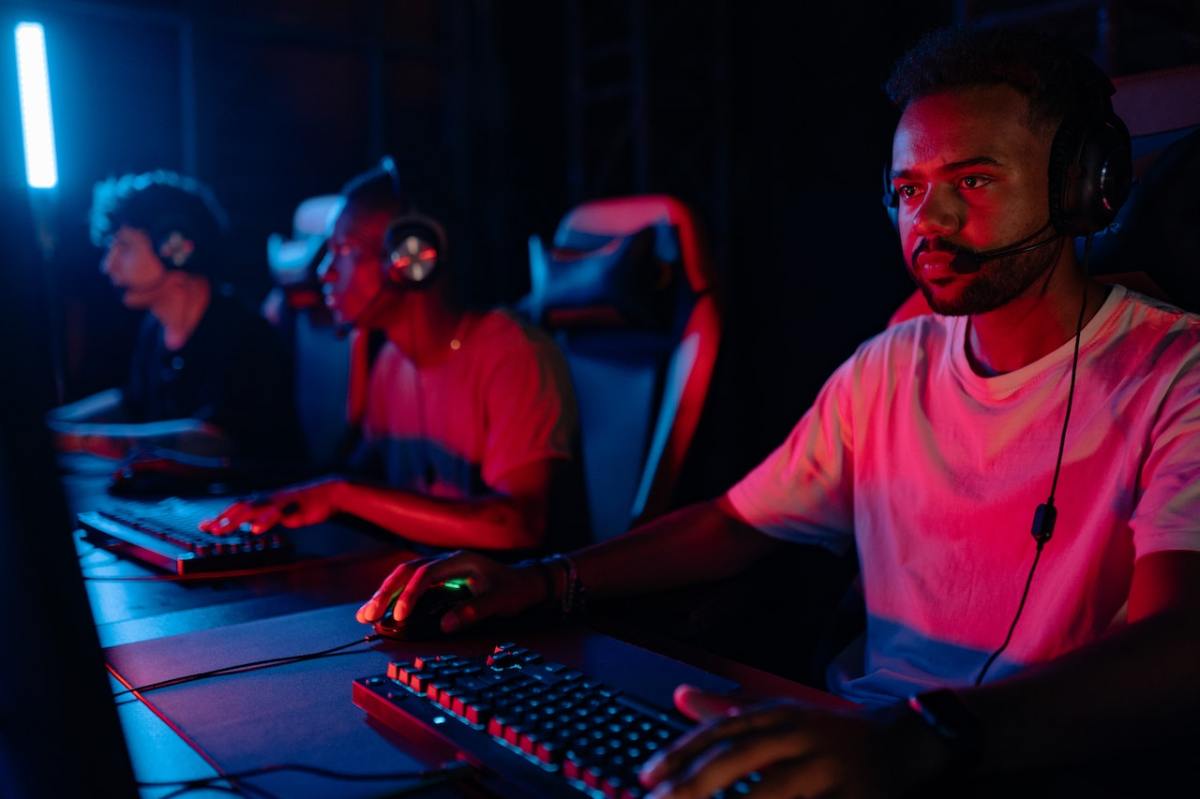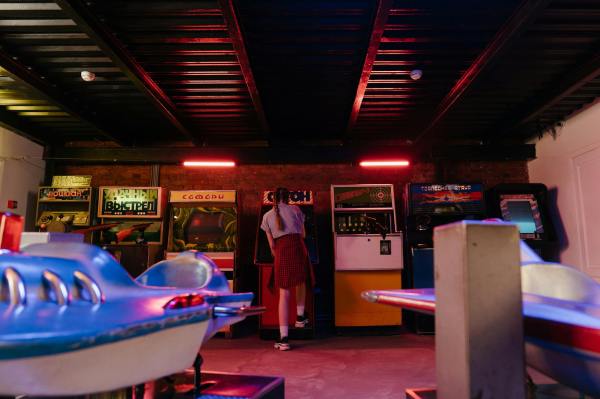What started as a hobby at home on the video game console has definitely taken on a life of its own. ESports is now a well-established industry which has professional players and teams, demanding international competitions and a strong corporate commitment to satisfying its millions of die-hard fans.
The results, immune to the pandemic, are conclusive. Its business turnover in 2021 was well over thirty million euros in Spain and around one thousand worldwide, according to data from Newzoo, a consultancy specialising in video games, largely due to the fact that it is not for the enjoyment of teenagers only, as shown by the fact that the largest group of followers are adults between 21 and 35 years of age.
eSports, much more than video games
The question is: What makes eSports so exciting and viral?
One of their greatest virtues is that they share the excitement and competitiveness of the sport, with the same teams structure and with players striving to beat their opponents in perfectly organised tournaments, going through knock-out rounds before they can secure the final victory. All of this gets multiplied by a large and enthusiastic audience, whether online or in person.
Logically, businesses and sponsorships has been lured and found an ideal niche to align themselves with the forefront in technology (video consoles, computers, smartphones, tablets) and image advertising, aimed at an audience that consumes it naturally.
The discrepancy is whether or not eSports can really be considered sports.
This diatribe is clearly no longer open for discussion within football, as they have been sponsored at their own competitions by the main institutions: FIFA, UEFA, LaLiga in Spain, plus tremendous expansion in the United States, Asia and Latin America.
Likewise, there are other international federations that don’t want to miss out on the eSports phenomenon. Among them, they have created their own competitions in basketball, cycling, motor racing, motorcycling, baseball, sailing, rowing, Commonwealth Games, etc. And this is just the beginning.
Looking ahead to Los Angeles 2028
Things are different if we transfer this to the world’s biggest sporting event, the Olympic Games.
The International Olympic Committee (IOC) is aware of the glory e-sports has attained and has already taken a first step—delayed to 2021 because of the pandemic—in Tokyo with the Olympic Virtual Series, which was held in parallel to the Olympic Games in the Japanese capital.
Paris has not included them as an official discipline for the next 2024, but there is a very big window of opportunity for the Los Angeles 2028, especially as it symbolises such an important showcase in the USA.
The main obstacle to the IOC’s acceptance of eSports is that they are not dependent on global federations but on private companies and that several of the most popular eSports have a ‘violence’ component that does not fit within the ethical principles of the Olympic Charter. However, those that are strictly sporting competitions could be illegible for it.
Movistar Riders
The Spanish team of reference are Movistar Riders, who in April were ranked 12th in the world and 8th in the European CS:GO rankings, according to HLTV.org.
Comprised of Alejandro Masanet a.k.a. “alex”, Alejandro Fernández-Quejo a.k.a. “mopoz”, Álvaro García a.k.a. “SunPayus”, Raul Jordan a.k.a. “DeathZz” and David Granado a.k.a. “dav1g”, and captained by Galder Barcena a.k.a. “bladE”, Movistar Riders made history by becoming the first Spanish team to qualify for the Counter-Strike ESL Pro League world competition: Global Offensive (CS:GO) and reach the quarter-finals.
Telefónica has been committed to this since 2017 and created the Movistar eSports Center in Madrid, the first high-performance eSports centre in Europe, home to the Movistar Riders club.
It is a 1000m2 building which is open to the community and where all the club’s activities take place, as well as the celebration and broadcasting of competitions and matches and events related to the dissemination of e-sports.
Fortnite, League of Legends, Call of Duty, Rainbow Six and StarCraft are, apart from the aforementioned football, some of the most followed eSports in the world.
7 out of 10 fans follow the competitions
A study by MasterCard reveals that 7 out of 10 Spanish fans between 26 and 35 years of age regularly follow official competitions. Moreover, the vast majority of them (79%) spend at least 2 hours watching these tournaments.
As for the platforms that gamers favour in order to follow the tournaments, Twitch (53%) and YouTube Gaming (45%) stand out. And if we are talking about the face-to-face format, 21% of them are interested in physically attending these kinds of events. Furthermore, 87% of users say that they follow the championships of those eSports that they themselves play.
According to the report by the Spanish Video Games Association (AEVI, per its Spanish initials), Spanish eSports have returned to pre-pandemic levels. This industry had a turnover of 34 million euros in 2021, just one million below what it generated in 2019. This means a 26% increase in comparison to 2020.
The recovery in revenues has come mainly from “the return of face-to-face events, the emergence of new properties and an upturn in the amounts of sponsorship and advertising,” the document states.
In terms of employment, in 2019 it was estimated that there were around 1,000 direct jobs, while in 2021 they stand at 820 people. Clubs account for most of the recruitment, with 577 jobs, although it is the tournament organisers that have increased their workforce the most.
In terms of audiences, Spain continues to grow above the global average. In the country, the penetration figures for eSports is 49%, including casual and regular consumers as well as die-hard fans, according to Deloitte.
eXperiential summit
It is not about how traditional brands “want to be part of the video game world, they have no choice but to be.” This is the conclusion reached by eSports experts and professionals on the impact of this new industry on traditional advertising, during the ‘eXperiential summit’ (eXs) event.
Spain has 16 million gamers, 3 million of whom regularly participate in competitions, according to data from the aforementioned AEVI.
The sector, according to the experts’ assessment, has emerged “unscathed and even strengthened from the pandemic”, with a growing audience. In the case of Team Movistar Riders, it has quadrupled its audience over the last year, according to its executive director, Fernando Piquer.
During his intervention in the new content round table, Piquer explained that the “core player” type—those who play professionally or semi-professionally—is on the rise.
In his opinion, the pandemic and the measures enforced, such as lockdowns, have meant that playing sports video games was considered “socially acceptable“, given that outdoor sporting activities were not allowed.
In this way, people who have adopted this form of entertainment are “quite open to advertising”, as they do not mind “consuming” these products if it means they can go on playing.
Jorge Schnura of the MadLions Team supported this trend, especially since companies have shifted investments they initially intended would go to face-to-face events towards online activities.
Schnura described video games as “the most mainstream entertainment there is” today, with a “very diverse” audience that “consumes all kinds of brands.” The majority of fans are between 25 and 35 years old, and we have more fans over 35 than under 18,” he said.







